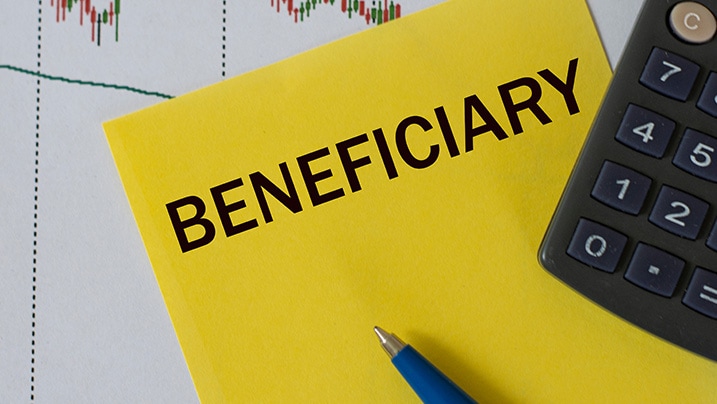CKYC Registry
-
Customer Service Contact us Service request Locate a branch
Find all the help you need
Scan the QR, get our app, and find help on your fingertips

Help CenterSupport topics, Contact us, FAQs and more
-
Login
Are you ready for an upgrade?
Login to the new experience with best features and services
-
Login
Are you ready for an upgrade?
Login to the new experience with best features and services
- Accounts
-
Deposits
IDFC FIRST Bank Deposits
View all Deposits -
Loans
IDFC FIRST Bank Loans
View all Loans - Wealth & Insure
-
Payments
IDFC FIRST Bank Payments
View all Payments -
Cards
IDFC FIRST Bank Cards
View all Cards - Blogs
- Corporate Account
-
Cash Management Services
IDFC FIRST Bank Cash Management Services
View all Cash Management Services - Supply Chain Finance
-
Corporate Lending
IDFC FIRST Bank Lending
View all -
Treasury
IDFC FIRST Bank Treasury
See more details - NBFC Financing
Support topics, Contact us, FAQs and more
- IDFC FIRST Bank Accounts
-
Savings Account
-
Corporate Salary
Account -
Senior Citizens
Savings Account -
First Power
Account -
Current Account
-
NRI Savings
Account -
TASC Institutional
Account -
Savings Account
Interest Calculator
- IDFC FIRST Bank Deposits
-
Fixed Deposit
-
Recurring Deposit
-
NRI Fixed Deposit
-
Safe Deposit Locker
-
FD Calculator
-
RD Calculator
- IDFC FIRST Bank Loans
-
Personal Loan
-
Consumer Durable
Loan -
Home Loan
-
Business Loan
-
Professional Loan
-
Education Loan
-
New Car Loan
-
Pre-owned Car Loan
-
Two Wheeler Loan
-
Pre-owned Two
Wheeler Loan -
Commercial Vehicle
Loan -
Gold Loan
-
Loan Against Property
-
Loan Against Securities
-
Easy Buy EMI card
-
Personal Loan
EMI Calculator -
Education Loan
EMI Calculator -
Home Loan
EMI Calculator
- IDFC FIRST Bank Wealth & Insure
-
FIRST Select
-
FIRST Wealth
-
FIRST Private
-
Mutual Funds
-
Sovereign Gold Bond
-
Demat Account
-
Term Insurance
-
Life Insurance
-
Health Insurance
-
General Insurance
-
Bonds
-
Loan Against
Securities -
Portfolio Management
Service
- IDFC FIRST Bank Payments
-
FASTag
-
Credit Card
Bill Payments -
UPI
-
Funds Transfer
-
Forex Services
-
Pay Loan EMI
- IDFC FIRST Bank Cards
-
Ashva :
Metal Credit Card -
Mayura :
Metal Credit Card -
FIRST Millennia
Credit Card -
FIRST Classic
Credit Card -
FIRST Select
Credit Card -
FIRST Wealth
Credit Card -
FIRST WOW!
Credit Card -
Deals
-
Debit Cards
-
Co-branded Cards
-
Credit Card
EMI Calculator -
FIRST Corporate
Credit Card -
FIRST Purchase
Credit Card -
FIRST Business
Credit Card
- Premium Metal Credit Cards
-
AshvaLifestyle1% Forex₹2,999
-
MayuraLifestyleZero Forex₹5,999
-
FIRST PrivateInvite Only
- Best for travellers
-
MayuraZero ForexMetal₹5,999
-
Ashva1% ForexMetal₹2,999
-
FIRST WOW!Zero ForexTravelLifetime Free
-
FIRST SWYPTravel OffersEMI₹499
-
FIRST Select1.99% ForexLifestyleLifetime Free
-
FIRST Wealth1.5% ForexLifestyleLifetime Free
-
Club VistaraTravelLifestyle₹4,999
-
IndiGo IDFC FIRST Dual Credit CardTravelLifestyle₹4,999
- Max benefits, Free for life
-
FIRST Classic10X RewardsShoppingNever Expiring Rewards
-
FIRST Millennia10X RewardsShoppingNever Expiring Rewards
-
FIRST Select10X RewardsLifestyle1.99% Forex
-
FIRST Wealth10X RewardsLifestyle1.5% Forex
-
FIRST WOW!RewardsTravelZero Forex
-
LIC ClassicRewardsInsuranceShopping
-
LIC SelectRewardsInsuranceShopping
- Reward Multipliers
-
AshvaLifestyleMetal₹2,999
-
MayuraLifestyleZero Forex₹5,999
-
FIRST ClassicNever Expiring RewardsShoppingLifetime Free
-
FIRST MillenniaNever Expiring RewardsShoppingLifetime Free
-
FIRST SelectNever Expiring RewardsLifestyleLifetime Free
-
FIRST WealthNever Expiring RewardsLifestyleLifetime Free
- Rewards & Credit on UPI
-
FIRST Power+FuelUPI₹499
-
FIRST PowerFuelUPI₹199
-
FIRST EA₹NVirtual1% Cashback₹499
-
FIRST DigitalVirtualUPI₹199
-
IndiGo IDFC FIRST Dual Credit CardUPITravelDual cards
- Fuel and Savings
-
FIRST PowerRewardsUPI₹199
-
FIRST Power+RewardsUPI₹499
-
LIC ClassicRewardsInsuranceShopping
-
LIC SelectRewardsInsuranceShopping
- Express and Flaunt
-
AshvaMetal1% Forex₹2,999
-
MayuraMetalZero Forex₹5,999
-
FIRST SWYPEMIOfferMAX₹499
-
FIRST MillenniaRewardsShoppingLifetime Free
- FD Backed rewarding Credit Cards for all
-
FIRST EA₹NVirtualCashback₹499
-
FIRST WOW!Zero ForexTravelLifetime Free
-
CreditPro Balance TransferTransfer & SaveReduce InterestPay Smartly
- IDFC FIRST Bank NRI Forex Solutions
-
Send money to India-Wire transfer
-
Send money to India-Digitally
-
Send money abroad
-
Max Returns FD (INR)
- IDFC FIRST Bank MSME Accounts
-
Platinum Current
Account -
Gold
Current Account -
Silver Plus
Current Account -
Merchant Multiplier
Account -
Agri Multiplier
Account -
TASC Institutional
Account -
Dynamic Current
Account -
World business
Account -
First Startup
Current Account
- IDFC FIRST Bank Business Loans
-
Business Loan
-
Professional Loan
-
Loan Against Property
-
Business Loan for Women
-
Working Capital Loan
-
Construction Equipment Loan
-
Machinery Loan
-
Healthcare Equipment Loan
- IDFC FIRST Bank Business Solutions
-
Payment Solutions
-
Tax Payments
-
Doorstep Banking
-
Point of Sale (POS)
-
Escrow Accounts
-
NACH
-
Payment Gateway
-
UPI
-
Virtual Accounts
-
As per amendment in the Income Tax Rules, PAN or Aadhaar are to be mandatorily quoted for cash deposit or withdrawal aggregating to Rupees twenty lakhs or more in a FY. Please update your PAN or Aadhaar. Kindly reach out to the Bank’s contact center on 1800 10 888 or visit the nearest IDFC FIRST Bank branch for further queries.
-
-
Most Searched
Sorry!
We couldn’t find ‘’ in our website
Here is what you can do :
- Try checking the spelling and search
- Search from below suggestions instead
- Widen your search & try a more generic keyword
Suggested
Get a Credit Card
Enjoy Zero Charges on All Commonly Used Savings Account Services
Open Account Now
Savings Account
Beneficiary Account meaning: What is a beneficiary name?
Key Takeaways
A beneficiary bank account is a type of savings account in which funds are transferred when the primary account owner is no longer around.
Creating a beneficiary bank account ensures the funds in the primary bank account are not subject to any legal issues.
Beneficiaries do not have access to the account while the owner is alive. They will not be able to withdraw money from it either, unless they have the debit card and PIN of the account.
Customers can easily open a beneficiary account or add a beneficiary designation to a pre-existing account through online or offline modes.
One might think of IRAs, trust funds, mutual funds, and other assets, or even life insurance plans when you hear the term "beneficiary account." Knowing what the term refers to, how beneficiary accounts function, and what they are meant for, can help you use these accounts to the best of your advantage. Let’s dive deep into the meaning and benefits of a beneficiary account.
READ MORE
What is a beneficiary account?
A beneficiary bank account is a type of savings account in which the funds are transferred to somebody else after the account owner passes away. Beneficiaries play a crucial role not only for life insurance, retirement funds, or big investments, but also for bank accounts. Your beneficiary would be a person(s) who you would wish receives your funds after your demise.
Establishing a beneficiary bank account will keep the funds in your bank account safe from the risk of legal issues when you pass away. If you do not have a beneficiary bank account, your funds may get caught up in probate, which is a legal process that settles whether a will or trust is valid, or who receives your estate if you don't leave a will. If you have a beneficiary account, the funds in that account will be transferred to the beneficiary automatically. This may assist your loved ones in covering funeral expenditure as well as ongoing needs such as rent, loans, and utility costs.
Beneficiaries do not have access to your account while you are alive. They won't be able to take money from your account until you provide them with your debit card and PIN. If your beneficiary faces charges, owes taxes, or falls into serious debt, their creditors cannot access the funds in your account.
IDFC FIRST Bank allows you to easily add a nominee to your savings account, ensuring smooth and secure transfer of funds to your chosen beneficiary. With competitive interest rates and monthly interest credits, your savings not only stay secure but also grow steadily. Whether you’re opening a new account or updating an existing one, IDFC FIRST Bank offers a seamless process through both its online mode and via the branch.
What is a beneficiary name?
The beneficiary’s name, or the payee’s name, is crucial in banking services. Banks need to confirm the beneficiary’s identity before transferring any funds to their account. When you send money online, you must enter the exact name of the person as it appears in their account. The Bank checks this name to ensure it matches the account owner, preventing mistakes. If there’s an error in the name or details, the transaction could get rejected or get transferred to a wrong account.
Types of beneficiaries in banking services
There are different types of beneficiaries, including:
Individual beneficiary:
This is the most common type, where an authorised person receives money or assets. For instance, family members who conduct informal transactions fall under this category.
Trusts as beneficiaries:
Public and private trusts can also be named as beneficiaries, especially in cases like charitable donations.
Joint account beneficiary:
In a joint account, one account holder can name the other as a beneficiary. This arrangement ensures that in case of a premature loss of one holder, the other receives the funds directly.
Why you should add a beneficiary
Adding a beneficiary comes with several advantages like:
Accuracy in transactions:
Having a clearly defined beneficiary ensures accuracy in transactions. Providing details like the beneficiary’s full name, account number, and other bank information helps minimise the chance of funds going to the wrong account.
Improved security:
Adding a beneficiary also enhances security, as only authorised individuals can access or change beneficiary details, reducing the risk of fraud.
Easier fund transfers:
Defining beneficiaries makes it simpler to complete fund transfers, whether they are one-time or recurring payments.
Flexibility to update:
Beneficiary details can be updated as needed, giving account holders the flexibility to adjust information when required.
How can I open a beneficiary account?
Customers can easily open a beneficiary account or add a beneficiary designation to a pre-existing account at most financial institutions. To open a bank account online, all you need to do is go to the website of a bank and follow the steps on your screen. You could also open an account by visiting your bank branch and asking your teller to open an account for you.
However, unlike other sorts of accounts, such as IRAs, you must ask for a beneficiary on a bank account. There is no requirement to name a beneficiary on a bank account unless you choose to do so. As a regular feature on savings accounts, and money market accounts, most financial institutions now provide beneficiary accounts that are "payable on death," or POD accounts.
With IDFC FIRST Bank, you can open a beneficiary-enabled savings account through an entirely online process in just a few clicks or by visiting any branch. Our intuitive platform ensures you can add or update beneficiary details with ease, offering flexibility and convenience.
Documents required to open a beneficiary account
Opening a beneficiary account or adding a specified beneficiary to an existing one are simple processes. Request the forms from your bank to designate a beneficiary for your account. Your bank should be able to offer you the right set of forms to fill. Here, you can specify a primary and contingent beneficiary. The beneficiaries do not need to be present and nor do they need to sign any paperwork.
Do I need a living trust if I have a beneficiary account?
You may wish to set up a flexible living trust if you have various accounts, investments, and valuables. A living trust assigns all your assets to you and gives you the ultimate authority over them during your lifetime. Following your death, your "successor trustee" would operate on your behalf, transferring assets to your beneficiaries. During your lifetime, you can replace your successor trustee or "revoke" their trusteeship.
Conclusion
Establishing a beneficiary account provides security and clarity over your finances, ensuring that your savings reach the right people with ease and without legal complications. Adding a beneficiary to your account or setting up a specific beneficiary account is generally a simple process that can be done online or at your bank’s branch.
IDFC FIRST Bank helps make this process easy and transparent. Along with competitive savings account interest rates and monthly interest credits, you also enjoy features like high transaction limits and complimentary insurance benefits.
For example, the ₹10,000 AMB variant offers a personal accident insurance cover of ₹5 lakhs and air accident insurance cover of ₹30 lakhs. The ₹25,000 AMB variant provides even greater coverage, with a ₹35 lakh personal accident cover and ₹1 crore air accident insurance. Visit the IDFC FIRST Bank website or speak to our relationship managers to open a savings account that’s designed for your goals.
Disclaimer
The contents of this article/infographic/picture/video are meant solely for information purposes. The contents are generic in nature and for informational purposes only. It is not a substitute for specific advice in your own circumstances. The information is subject to updation, completion, revision, verification and amendment and the same may change materially. The information is not intended for distribution or use by any person in any jurisdiction where such distribution or use would be contrary to law or regulation or would subject IDFC FIRST Bank or its affiliates to any licensing or registration requirements. IDFC FIRST Bank shall not be responsible for any direct/indirect loss or liability incurred by the reader for taking any financial decisions based on the contents and information mentioned. Please consult your financial advisor before making any financial decision.
The features, benefits and offers mentioned in the article are applicable as on the day of publication of this blog and is subject to change without notice. The contents herein are also subject to other product specific terms and conditions and any third party terms and conditions, as applicable. Please refer our website www.idfcfirstbank.com for latest updates.























